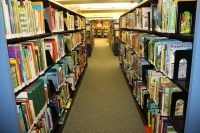
This month’s STEM Tuesday Theme: Wild and Wacky Science has the potential to lead readers in all directions! What a fun Book List the STEM Tuesday Team found for us this month.
Here are a few ways to use this month’s books in the classroom, extending learning beyond simply reading. Enjoy these suggestions, and as always, we welcome your additional suggestions in the comments below!
 Follow a Friend on Facebook!
Follow a Friend on Facebook!
After reading Unstoppable: True Stories of Amazing Bionic Animals by Nancy Furstinger, you’ll want to adopt one of these furry heroes! Since convincing parents to get new pets of any kind can be a monumental task, it might be easier for your class to befriend a furrrball on Facebook. Here are links to the Facebook pages of several of Furstinger’s friends.
Chris P Bacon, Pig on Wheels @CPBaconWheels
Brutus the Rottweiler @betterpawsforbrutus
Molly the Three-Legged Pony @mollythe3leggedpony
Vincent the Cat @walkingvincentcat
Albie, Felix, and Fawn, Woodstock Farm Sanctuary @woodstockfarm
 Chart Your Allergies!
Chart Your Allergies!
First, read Itch! Everything You Didn’t Want to Know About What Makes You Scratch by Anita Sanchez.
Then, practice data-collecting, chart-making, graphing, and data analysis skills by doing a classroom allergy assessment. Start by asking students to create their own survey. What questions will you need to ask to find out who is allergic to what? Create the survey together, complete the surveys, and gather the data. Next, chart or graph (or both!) the results for a visual and numeric display of what gets under your skin. Who’s is inclined to itch when the cat comes in? Do menacing mosquitoes munch on many or just a few of the members of your class?
 Dig Deeper! Get the DNA 411!
Dig Deeper! Get the DNA 411!
In Forgotten Bones, Uncovering of a Slave Cemetery, Lois Miner Huey takes readers on a fascinating journey that begins with the discovery of and leads to an amazing amount of information about the thirteen slaves buried on what was once the Schuyler Family Farm near Albany, New York.
Much of what the scientists on the scene and in the lab near Albany were able to determine about the slaves was came the DNA samples from seven of the adult skeletons. But what do you really know about DNA? Plan ahead for National DNA Day, April 25th, by checking out this website for several great DNA-related activities to do with kids.
Make a Book Trailer. Some of this month’s book picks have cool book trailers available on You Tube. Watch these one-minute advertisements for wild and wacky nonfiction and make your own book trailer. There’s a lot to be said about getting the most out of just sixty seconds of screen time! Can you make a trailer that is certain to send readers running to the library to check out the book you’ve read? Here’s a link to a helpful tutorial to show How to Make a Book Trailer in iMovie.


This week’s STEM Tuesday post was prepared by

Michelle Houts delights in the wild and wacky side of finding fun facts for young readers. She writes both fiction and nonfiction and often finds the nonfiction harder to believe than the fiction. Find her on Instagram and Twitter @mhoutswrites and on the web at www.michellehouts.com.


















 Nancy Castaldo
Nancy Castaldo